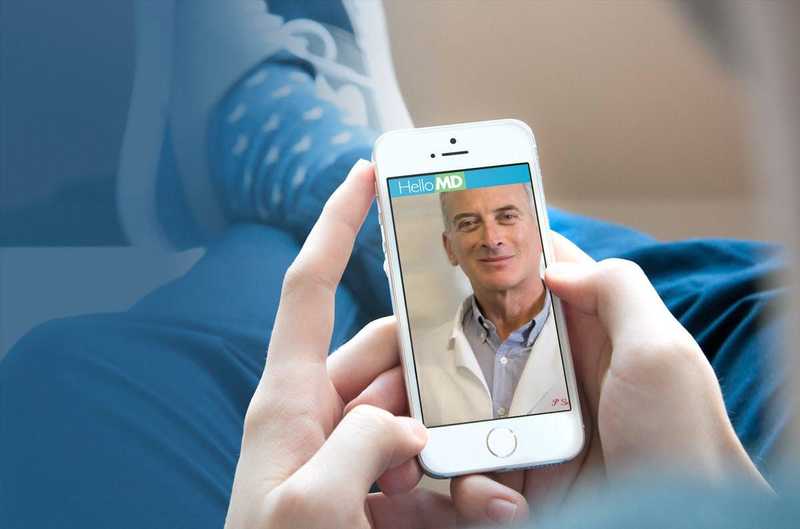When it comes to the availability of physician recommendations for medical cannabis to patients, consumers across the country have an enormous problem: access. Although there have been many thoughts about why this access problem exists, I attribute it to the ignorance of legislators regarding the benefits of medicinal cannabis and the reluctance of my fellow physicians to educate themselves about the conditions for which medical marijuana is a very effective treatment.
A perfect example of the former is the recently passed requirements in New York State. The law there lists several medical conditions that patients must have to be entitled to see a medical marijuana physician. Unfortunately, one of the most commonly reported conditions, chronic pain (a condition that cannabis has been scientifically proven to treat effectively), is not included in the list! This exclusion bars pain suffers from accessing an effective and much-needed treatment.
The laws in New York aren't just limiting for patients, though; if a physician in New York wants to participate as a medical marijuana physician, he or she is now required to take a four-hour continuing medical education course at a cost of $250, a law that makes New York's education requirements the most stringent in the United States.
Low Levels of Physician Interest
Marijuanadoctors.com, an information site and national clearinghouse that connects patients with physicians willing to certify them, surveyed 500 New York doctors in the early
- The purpose of this survey was to gauge the number of doctors who would potentially participate in the state's medical marijuana program.
After the company informed physicians about New York's stringent and expensive training requirements, however, only one physician of the 500 originally surveyed was actually interested in participating in cannabis recommendations! Is it fear of being investigated by the FDA? Ignorance as to the benefits of cannabis in treating the acceptable medical conditions? Time consuming training? I'm sure it's a combination of all three but it makes cannabis access much more difficult, if not impossible, for patients.
Why Telehealth Access
For access to medical cannabis evaluations, Telehealth is the best option by far. During a Telehealth appointment, a patient can meet with a doctor via a remote platform from wherever he or she chooses. This saves them the trouble of driving to a doctor's office (sometimes in a questionable part of town and at a great distance), parking, waiting and missing out on other obligations. Telehealth fills an important gap in the current medical marijuana access structure: by bringing medical examinations to patients rather than making them trek to a provider's office, more patients can obtain the access to the care they need. At the conclusion of the virtual meeting, if the doctor feels the patient would benefit from cannabis, they can download a recommendation letter immediately for use at a dispensary. This allows the patients to have instant access for products to help their medical condition. It's obvious that Telehealth plays an important role in doing away with many of the barriers medical marijuana consumers previously faced. In many states, however, Telehealth care is impossible to access for cannabis recommendations. Why? Because in all states other than California and Nevada, its illegal!
The Current State of Telehealth
In enlightened states like California and Nevada, where Telehealth cannabis evaluations are legal, patients can be "seen" remotely at their own convenience. Why don't more states allow this? The answer, I believe, is the reluctance of physicians to suggest this to the governing bodies as well as the Medical Boards allowing it. Is it fear of liability? Fear of the FDA? Financial gain? Telehealth is acceptable in 29 states right now. Why not for cannabis?
Unfortunately, in-person examinations are required in the other 21 states that allow medicinal cannabis, make accessing medical marijuana virtually impossible for many qualified patients. For example, if a patient is housebound, elderly, lacking transportation or unwilling to visit an area of the city where medical marijuana clinics are often located, that patient is essentially denied care. This is especially unfortunate because seniors are currently the fastest-growing demographic of medical marijuana users, and they are also especially likely to have difficulty attending in-person consultations. Telehealth care has the potential to expand the reach of medical marijuana and help underserved populations gain access to effective cannabis treatments.
There are many companies that presently use remote platforms to perform Telehealth patient evaluations and prescribe medication, some more much more dangerous than cannabis, when appropriate. They have been around for several years, insurance companies use them as a way to increase access and they are growing by leaps and bounds. Patients are flocking to these sites for the convenience and privacy that they provide. Why should cannabis recommendations be any different for a medication that has been used medicinally for thousands of years and has a patient safety record that is unbeatable?
Access for All
In states like California and Nevada, where it's legal, Telehealth is already a convenient and effective form of reaching out to connect physicians and patients who need medicinal cannabis. In the states that haven't caught on to the changing tides, however, it's imperative that consumers speak out on behalf of Telehealth access. Promote Telehealth to your legislators and explain to them that they are restricting your access to care.
It is not enough to only increase the number of physicians who perform evaluations. We must push for being able to do this remotely. Doing this will help ensure that Telehealth care is available to every patient who needs it and to provide medicinal cannabis access for all.
